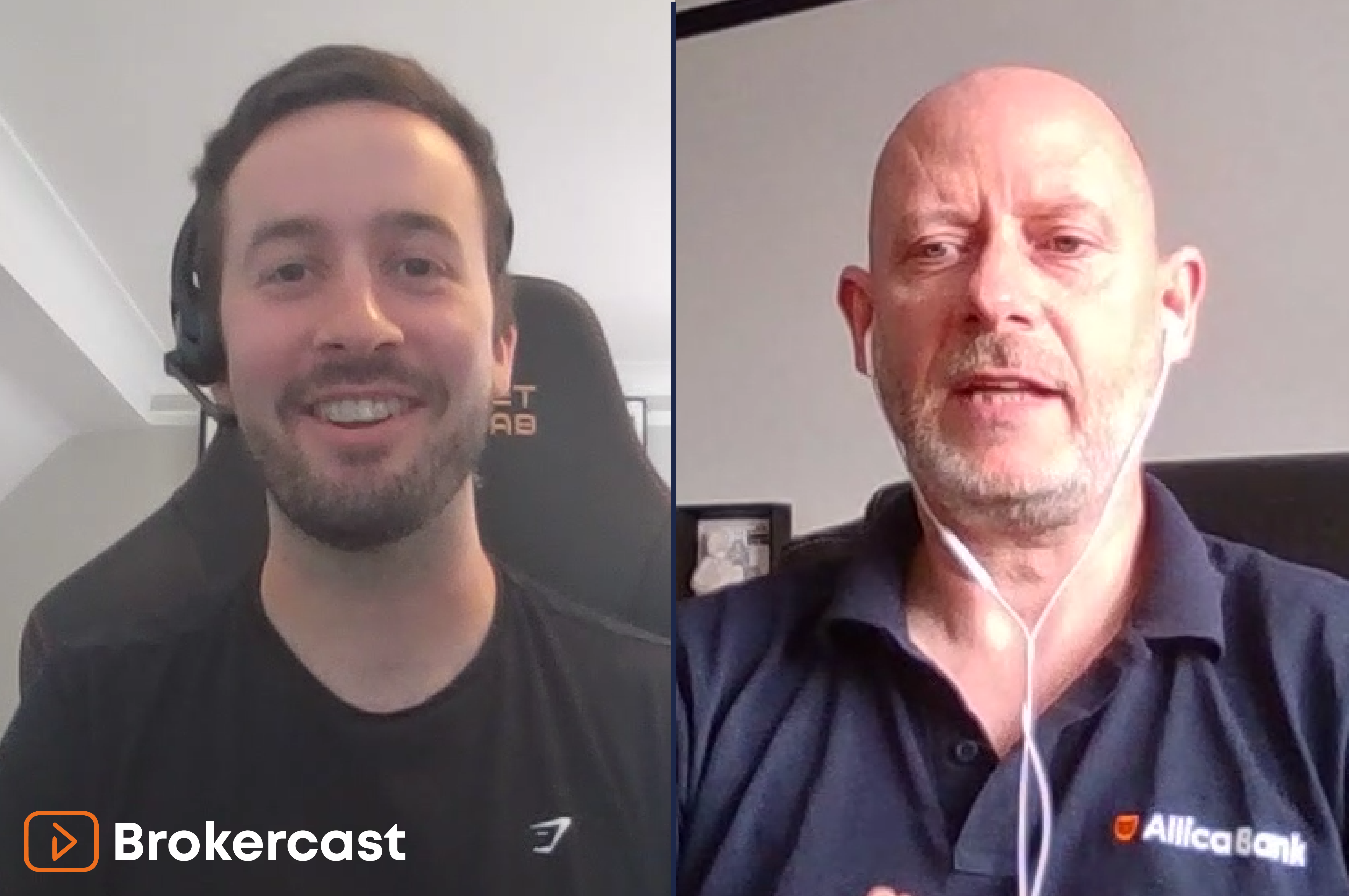Episode five of Brokercast is hosted by Allica Bank’s Senior Broker Manager Brandon Hall. He talks with our Head of Underwriting for asset finance, Jonathan Crook, to explore how asset finance brokers and our underwriting team can work together to get asset finance deals over the line quicker than ever before, and the value of having a transparent and collaborative relationship.
Jonathan began by introducing himself and his team. He described how he honed his craft over a decade underwriting asset finance loans, starting life at Lombard before moving on to Aldermore, and then joining Allica Bank last year.
He leads a team of four underwriters who have been working flat out on pushing through deals with a huge variation of clients this year. Demand has been so high, he explained, that they’ve just had to bring in a fifth member of the team.
Explaining their role at the bank, Jon said, “our job is to make decisions that are appropriate and pragmatic for the customer as well as Allica. It’s a fine balance to strike.
“We want to help SMEs buy the assets they need, whether it’s replacing old kit or expanding to fulfil a new contract. But that needs to be done within the context of our own risk appetite. We want to grow safely so we can continue to support clients in the long term.”
Brandon brought up the positive response he’s had from brokers who’d been given access to Jon’s team.
“I don’t know why banks wouldn’t want their underwriters to speak to brokers,” was Jon’s reply. “Our job is to get to the right decision, and that often involves understanding the story behind the deal. The broker is in an ideal position to help, especially when the application is complex or challenging.
“Everyone wants a fast process,” he continued. “When there’s something missing from the basic information we’re provided, it’s so much easier to jump on a quick call to fill in the gaps. A simple conversation can provide the necessary context to get under the skin of the deal.”
Providing context
What about the suite of information brokers need to put together, Brandon asked. What does ‘good’ look like from an underwriter’s perspective?
“Perhaps the most important thing is a clear ‘write-up’,” Jon said. “We’re not looking for ‘War & Peace’, just a concise articulation of the key risk points for the deal.”
“Be proportionate,” he expanded. “If it’s a big deal – £100,000 or more – you’ll want to provide a lot of detail. But if you’re looking for less money, say, £30,000, don’t go overboard. If anything, a ten-page write-up for that amount might make us nervous!”
“Alongside that, we’ll want to see a full set of accounts,” Jon said. “Include bank statements and Management Information if you can.
“We’ll also need information that’s relevant to the transaction they have in mind. For example, if the business is financing the loan off the back of a new client contract, it might be an idea to share that contract with us, or at least some commentary around it.”
The 'C' word
Brandon then asked about an issue that’s caused a lot of consternation among business owners, especially when it comes to funding. The dreaded ‘C’ word.
“Yes, I’m afraid we do need to know how Covid has affected the business. It’s not always negative, of course – there are some sectors that have thrived in the last 18 months. So make sure to reference if your client’s experience has been a positive one.
“But even when a business has struggled, it’s really important they know that it’s not an automatic red flag,” he continued. “Companies have accepted CBILS and bounce back loans for all kinds of reasons. We understand that doesn't always mean the underlying business is failing.
“It's about providing a frank and honest assessment of the likely impact of the pandemic on the company’s future. Brokers should make clear how the client will be able to afford to repay the loan, especially if it’s on top of existing funding they’ve recently accessed.
“We’ll also research the customer’s sector and how it’s been impacted. That macro view can be really helpful, in particular when it comes to larger transactions,” he concluded.
The more information, the better
Brandon then brought up a common theme throughout the Brokercast series: the need for brokers to provide as much information as soon as possible. Jon was in full agreement.
“It’s important to get the basic information in place from the get-go. Accounts and bank statements let us get a feel for the business and how it’s trading.
“Alongside that, it’s helpful to break down any creditors or debtors that make up a large chunk of the balance sheet. Brokers can help us contextualise potential risks and how they affect serviceability. By providing that information up front, brokers can often point us toward positive decisions.”
As far as Allica’s concerned, the days of ‘computer says no’ underwriting are numbered. We encourage brokers to speak to our underwriters to understand how decisions are made and make a case for your client. It could end up saving a lot of time!





